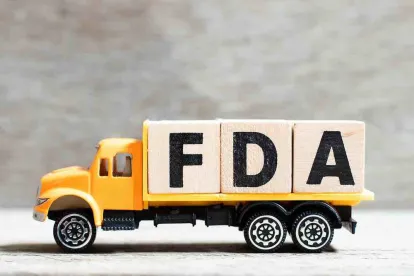-
The largest Salmonella outbreak in over a decade occurred last year when illness from Salmonella Newport associated with consumption of red onions from the Southern San Joaquin Valley and Imperial Valley in California was reported in 1,127 people in the U.S. and 515 people in Canada between June 19, 2020 and September 11, 2020. Red onions had never previously been associated with a foodborne illness outbreak. Red onions, as well as yellow, white and sweet onions distributed by Thomson International Inc. were recalled because of the possible Salmonella risk. The outbreak included 167 hospitalizations and no deaths.
-
On May 13, 2021, FDA released its Investigation Report: Factors Potentially Contributing to the Contamination of Red Onions Implicated in the Summer 2020 Outbreak of Salmonella Newport. FDA did not make a firm conclusion as to the root cause of contamination of the onions but identified contaminated irrigation water used in a growing field in Holtville, California as the leading hypothetical cause. Other highlights of FDA’s report include:
-
-
Out of nearly 2,000 subsamples tested, a total of 11 subsamples (10 water and 1 sediment) were positive for Salmonella Newport representing three different genotypes, but not the same genotype as the outbreak strain linked to consumption of red onions.
-
Aside from irrigation water, FDA identified sheep grazing on adjacent land, as well as signs of animal intrusion, such as scat and large flocks of birds, as plausible opportunities for contamination of the red onions.
-
Further, visual observations and records review of packing house practices confirmed numerous opportunities for spread of foodborne pathogens such as Salmonella, including signs of animal and pest intrusion as well as food contact surfaces which had not been inspected, maintained, cleaned, or sanitized as frequently as necessary to protect against the contamination of produce.
-
FDA found two sediment subsamples and two water subsamples of Salmonella isolates having the same genotype as clinical isolates previously associated with illness from Salmonella Muenchen and Salmonella Montevideo from earlier foodborne illness outbreaks linked to consumption of sprouts in 2016 and 2018, respectively, which FDA said could indicate human pathogen persistence and distribution in the associated growing region, posing a risk of contamination for any produce commodity and, thus, FDA has assigned a follow up investigation at the associated firms.
-
-
While FDA is considering how best to achieve public health protections in the covered produce agricultural water arena, non-sprout farms are not required to comply with the current agricultural water requirements of the Produce Safety Rule. Specifically, a March 18, 2019 Final Rule extended the compliance dates for the agricultural water provisions (subpart E) in the Standards for the ‘‘Growing, Harvesting, Packing, and Holding of Produce for Human Consumption’’ rule (November 27, 2015, 80 FR 74354), for covered produce other than sprouts, to January 26, 2024, for very small businesses, January 26, 2023, for small businesses, and January 26, 2022, for all other businesses.



 />i
/>i

